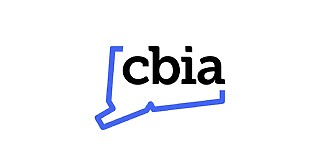US Chamber Challenges ‘Cost-Prohibitive’ H-1B Visa Fees

The U.S. Chamber of Commerce filed a lawsuit Oct. 16 challenging the Trump administration’s new $100,000 fee for H-1B visa petitions.
Filed in the U.S. District Court for the District of Columbia, the complaint argues that the fee is unlawful as it overrides provisions of the Immigration and Nationality Act that govern the H-1B program, including the requirement that fees be based on the costs incurred by the government.
“If implemented, that fee would inflict significant harm on American businesses, which would be forced to either dramatically increase their labor costs or hire fewer highly skilled employees for whom domestic replacements are not readily available,” the suit notes.
The chamber’s suit outlines the benefits of the H-1B program, which has been in place for more than 70 years, noting that the U.S. “is unique in its ability to attract the brightest talent from across
the globe.”
“Tens of thousands of highly skilled people in specialized fields boost the American economy each year after obtaining H-1B status,” the suit reads. “These workers allow businesses of all sizes, in industries across the economy, to innovate and grow.
“The resulting innovations lead to more American jobs, higher wages, and new products and services that improve the quality of life for all Americans.”
Global Talent
The White House announced the new H-1B visa fee Sept. 19, with an effective date of Sept. 21.
The H-1B program is largely designed for nonimmigrants hired to work temporarily in specialty occupations by U.S. companies.
Chamber executive vice president and chief policy officer Neil Bradley said the program was “created by Congress expressly to ensure that American businesses of all sizes can access the global talent they need to grow their operations here in the U.S.”
“We now have a once-in-a-generation opportunity to accomplish targeted legal immigration reforms.”
U.S. Chamber’s Neil Bradley
“The new $100,000 visa fee will make it cost-prohibitive for U.S. employers, especially start-ups and small and midsize businesses, to utilize the H-1B program,” he said in a statement.
“We now have a once-in-a-generation opportunity to accomplish targeted legal immigration reforms, and we stand ready to work with Congress and the administration to make that happen.
“That includes working together on common sense reforms to improve the visa process for skilled workers.
“The president has said he wants to educate, attract, and retain the world’s best and brightest in the U.S., and the chamber shares that goal.”
Immigration Policy
Connecticut businesses averaged 1,104 new H-1B approvals annually over the past decade. The visas are Issued through an annual lottery and capped at 85,000 per year across the country, with petitions costing up to $3,600.
Should the administration’s $100,000 fee withstand legal challenges, it will cost Connecticut employers approximately $110 million in additional annual costs.
The chamber’s suit outlines the U.S. Congress’ focus “on making this program available to employers seeking workers with specialized skills not available in the U.S. while preventing H-1B abuse and the displacement of American workers.”
“To that end, it has struck an intricate, thoughtful balance by specifying how fees for the program should be calculated, how many visas may be issued annually, and what requirements the executive branch should enforce to ensure that H-1B workers do not displace American workers or undercut wages,” the complaint reads.
“America needs more workers of all skill levels.”
U.S. Chamber
In a policy outline released in conjunction with the filing of the lawsuit, the chamber references the country’s labor shortage and the need for immigration reforms.
“If we are to continue to drive business investment in the U.S., grow our economy, and stay competitive with countries like China, America needs more workers of all skill levels,” the chamber says.
“A common misperception is that legal immigrants compete with American workers for scarce jobs. The reality, however, is that legal immigrants help grow the economy and support more job creation at higher wages.
“High-skilled workers on H-1B visas contribute to the growth of companies, which creates more jobs for everyone. And seasonal and agricultural workers help keep our farms, construction sites, and hospitality businesses up and running.”
RELATED
EXPLORE BY CATEGORY
Stay Connected with CBIA News Digests
The latest news and information delivered directly to your inbox.



